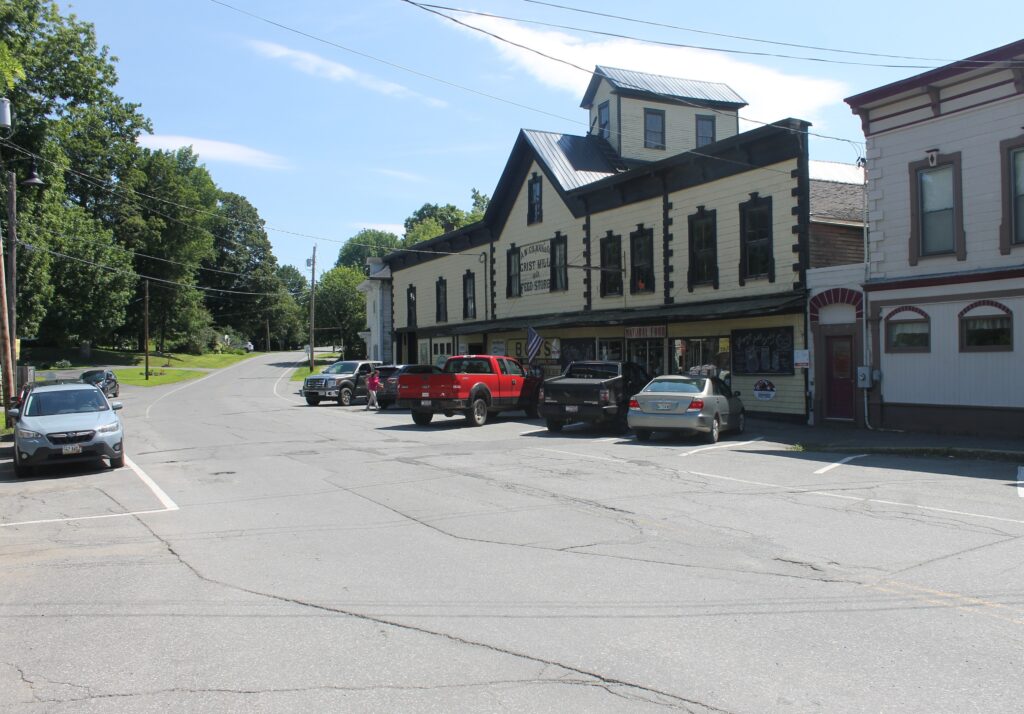
Municipal EMS department part of proposed Dover-Foxcroft budget
DOVER-FOXCROFT — As a way to supplement an increased emergency call volume and staffing challenges currently being experienced by Northern Light Mayo Emergency Medical Services, the town of Dover-Foxcroft is proposing the creation of a municipal EMS department to supplement that of the hospital. The proposal is part of the initial 2024-25 municipal budget presented to the select board during a meeting on Monday, Feb. 12.
Town Manager Jack Clukey said the town would have its own ambulance and EMS staff. The vehicle could be paid for in part with ARPA funds — the exact funding package would be determined in a bid process — and the fire department would train the staff.
Chairperson Tom Lizotte said Dover-Foxcroft would not be competing with Northern Light Mayo EMS, but instead supplementing.
“The idea is to give our people here a little flexibility,” Selectperson Joel Vail said, lessening the load for Northern Light Mayo EMS. “We will work out a contract so we are not competing with each other, we would be helping each other.”
He gave an example of Northern Light Mayo EMS being called to Lincoln, with the municipal EMS then being in town to cover other calls.
Selectperson Steve Grammont said this idea has come up in recent years with staffing challenges. “It’s pretty clear hoping and wishing it would go back to the way it was will not work out,” he said about the fewer calls and more available personnel of the past. He mentioned if nothing is done then a patient experiencing a heart attack may call 911, be told no ambulance is available, and then they would have to drive themself to the hospital.
“We have been very fortunate here in Dover-Foxcroft for a long time not to have to worry about this, but things change over time,” Lizotte said.
Vail said he believes Newport recently established its own EMS, and other Maine towns are doing likewise.
“This is something that’s really important to public safety,” Select Vice Chair Cindy Freeman Cyr said. She said it is also important to let the public know about the proposed change and to provide them with information during the budget process.
Clukey said the budget being brought forward includes a grant writing communications director position to assist with the grant application process, in part to help offset needed equipment and infrastructure improvements such as for town bridges. Monies are included for sidewalk for road paving as part of the municipal plans.
He said there is a one-time $300,000 appropriation from existing funds for making the second installment payment of a tank truck purchased in 2022. The move would avoid having to make interest payments at this year’s higher rates.
The year to year difference in appropriations is a $1,439,805 increase (20.99 percent), and the year to year difference in revenues to offset the tax commitment is up $852,608 (12 percent). The increase in the amount to be raised in the total tax commitment, provided there is no change in Dover-Foxcroft’s share of the RSU 68 budget, is $617,257 (9.14 percent) more. There is not projected to be a mill rate increase given the increase in state valuation from 2023 to 2024.
The budget advisory committee is scheduled to start meeting on Thursday, Feb. 29 and will meet weekly on Thursdays through March to work on the spending plan. The budget will be brought to the annual town meeting in late April and the finances approved that day go to a referendum vote in June.

BRIDGE UPGRADES — The bridge spanning the small stream underneath Lincoln Street in Dover-Foxcroft is scheduled to be reconstructed in 2025. The select board has approved a $218,400 proposal from Wright Pierce Engineers for permitting design for the project.
In other business, the board approved a $218,400 proposal from Wright Pierce Engineers for permitting design for the Lincoln Street bridge project.
“That’s the structure that goes underneath Bob’s Hardware,” Lizotte said, as the bridge spans the small stream underneath Lincoln Street.
Clukey said Wright Pierce Engineers was the only firm to submit a proposal, a sign that others are very busy with projects, but luckily he is very confident with the company.
At last year’s annual town meeting Clukey said a replacement project would cost approximately $2 million with the town having a $200,000 share. Wright Pierce Engineers would have its work done later in the year with construction to take place in 2025.
In his report Clukey said the Mayo Mill Dam steering committee is scheduled to present on the dam feasibility study and its recommendations at the next select meeting on Monday, Feb. 26.
More than a decade and a half has passed since the dam on the Piscataquis River downtown has produced energy. In the years since, the town-owned structure has remained in place but has been deteriorating under the continual water flow.
There were no easy answers on what to do with the site but under the auspices of a steering committee, a partners team began working more than a year ago to consider the various possibilities and everything tying into the dam — such as an assessment of the physical condition of the structure and property, an inventory, and being in compliance with all regulations — to be included in a community-based feasibility study to help determine the long-term future of the dam.
The committee has concluded that removing the dam and connecting facilities and building a riverfront park is in the town’s best interests moving forward. Reducing flooding dangers, improving the area’s ecology, including fish passage, and the availability of funding for dam removal are among the main reasons for the committee’s conclusion.
“It’s been a process of over a year, mountains of data,” Clukey said, with a public forum on the project being held in late January.
On Feb. 26 the select board will decide whether to move forward or not, and if so the town will craft an agreement with its partners on which direction to go.
If proceeding then the June referendum ballot would include a question on whether the town should accept grant funds or not for the dam removal project to see if residents favor the plan.
Clukey said Eastern Maine Community College is seeking a timeline and plan to discontinue owning the Penquis Higher Education Center property on Mayo Street. “Eastern Maine Community College doesn’t want to be a landlord indefinitely, they want to be a presence there,” he said.
EMCC would like to give the building, which once was Mayo Elementary School, back to the town. “It’s really come full circle,” Clukey said.
He said he is working with Thompson Free Library Director Jon Knepp and Piscataquis Valley Adult Education Cooperative Director Dr. Josh McNaughton on securing funds through the Maine Connectivity Authority for a major capital upgrade of the building. A letter of intent to the Connectivity Hub Grant Program has been submitted which can fund projects from $200,000 to $2 million.
“There’s a lot left to decide, we will talk about what level of interest there may be in the town owning or transferring to another entity,’ Clukey said. He said PHEC has been a valuable resource, and possibly it has been underutilized.
More than two decades ago EMCC acquired what is today PHEC from the town. In addition to being utilized by EMCC and the PVAEC, it also currently houses the Piscataquis County Economic Development Council and Eastern Maine Development Corporation.